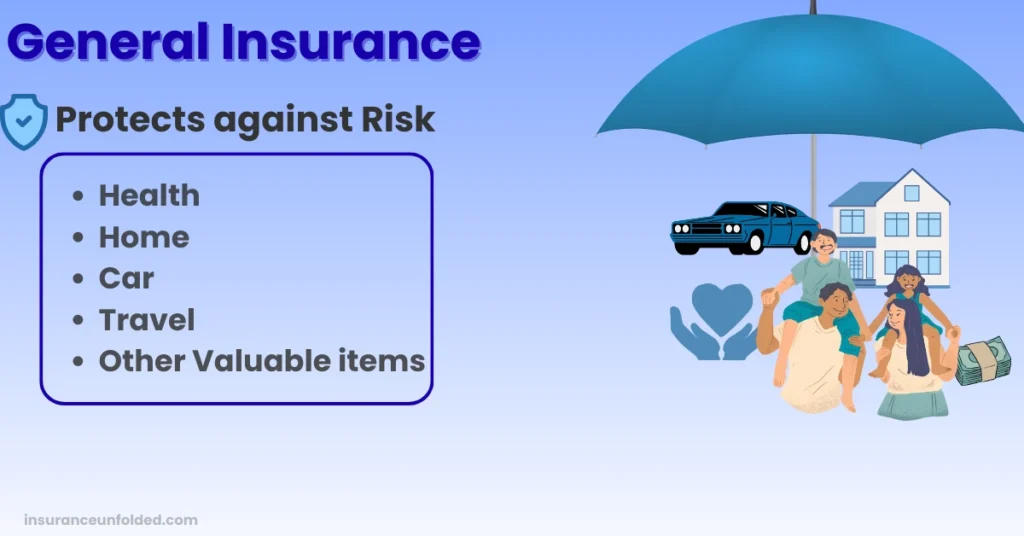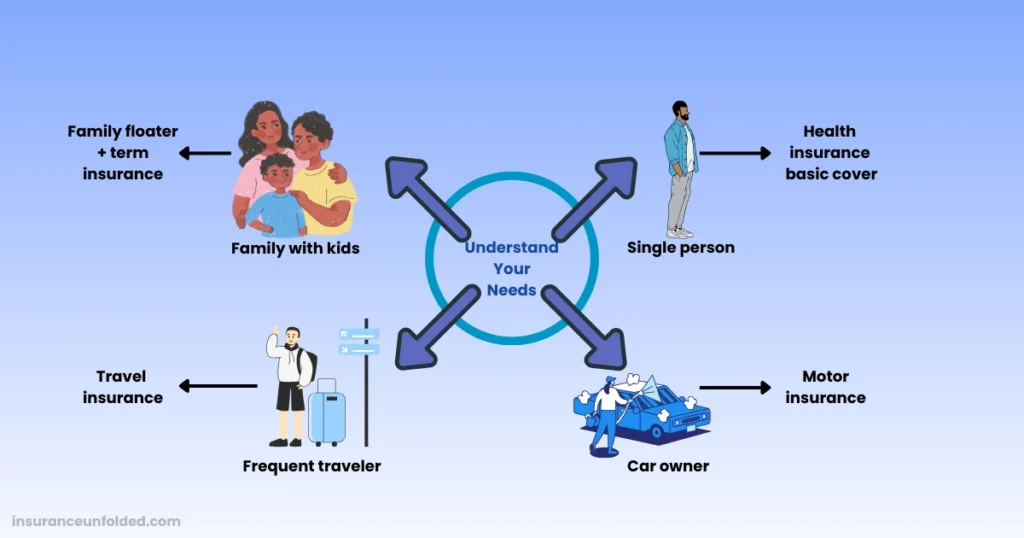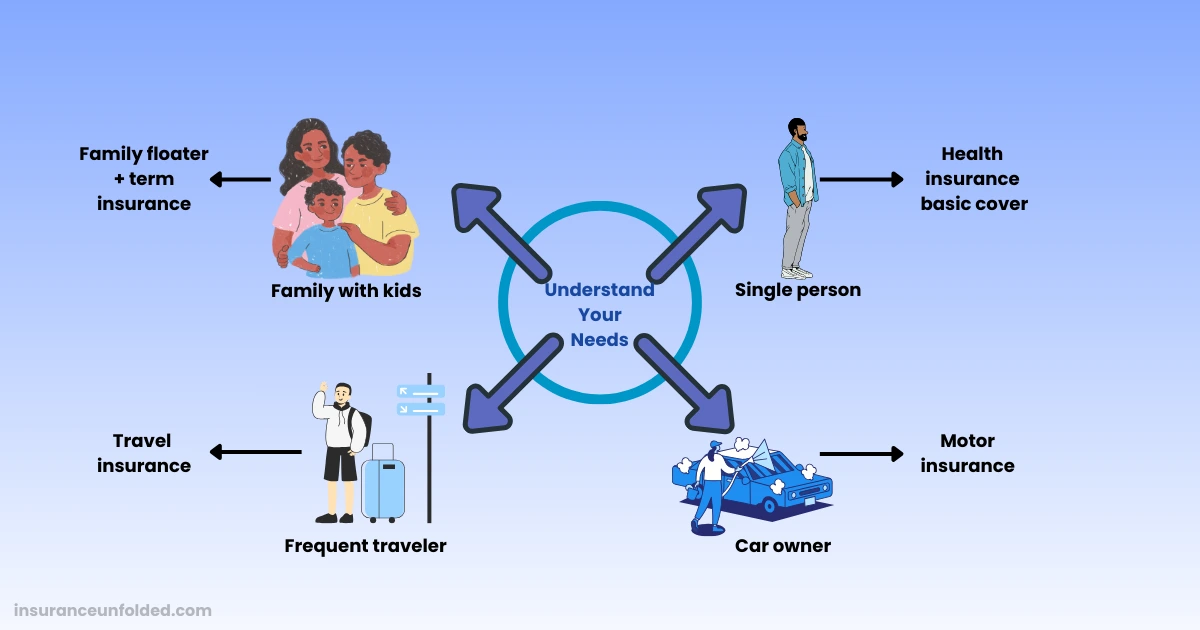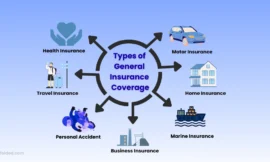Introduction
Insurance has become an essential financial safety net for every family today. Be it a health emergency, car accident or home damage – insurance protects you from major financial losses. But most people get confused when it comes to choosing their first general insurance policy. Selecting the right plan is very important as this decision forms the base of your future financial security.
In this article, I will explain step-by-step in simple language how to smartly choose your first general insurance policy – with examples and practical tips.
What is general insurance?
General insurance is a financial product that protects you from short-term risks – like health, car, home, travel, business, etc. Unlike life insurance, it is for a fixed period of time (1 year or more).

Example:
- Car accident → motor insurance claim.
- Hospitalization → health insurance claim.
- Flood damage in house → home insurance claim.
Step 1: Understand your needs
The first step is to identify your need. Not a single policy is best for everyone.
- Single person → Health insurance basic cover
- Family with kids → Family floater health insurance + term insurance
- Car owner → Motor insurance (compulsory in India)
- Frequent traveler → Travel insurance

Once you understand your needs, you will be able to choose your first general insurance policy in a better way.
Step 2: Choose Coverage with Premium
Every policy has two parts:
- Coverage = How much protection will you get (e.g., ₹5 lakh health cover)
- Premium = How much will you have to pay (e.g., ₹8,000 yearly)
Pro tip: Low premium does not always mean a good plan. Always give priority to coverage and benefits.
Step 3: Understand the deductible
Deductible means how much you will have to bear at the time of claim.
Example:
- Policy: ₹5 lakh health cover
- Deductible: ₹50,000
- Hospital bill: ₹3 lakh
- Insurance company will pay: ₹2.5 lakh
- You will pay: ₹50,000
Plans with low deductible are safe for beginners.
Step 4: Check the reputation of the insurance company
Reliability of every insurer is different.
Check:
- Claim Settlement Ratio (CSR) → How many % of claims have been settled (IRDAI data).
- Customer Reviews → Service quality and support.
- Network Hospitals/Garages → Cashless facility.
Example:
LIC and New India Assurance have high CSR, making them a safe option for policyholders.
Step 5: Understand the add-ons
Add-ons are extra benefits that increase the premium slightly but provide more protection.
- Car insurance add-ons: Zero depreciation, roadside assistance.
- Health insurance add-ons: Critical illness cover, maternity cover.
When you are choosing your first general insurance policy, do consider add-ons.
Step 6: Read the Policy Terms Carefully
Every insurance policy has its own terms & conditions. These may seem boring for beginners, but are important.
Pay special attention to:
- Exclusions (which will not be covered)
- Waiting periods (maternity, pre-existing diseases)
- Claim process
Step 7: Compare Using Online Tools
You can buy regular policies on IRDAI-approved insurance websites like Policybazaar, Coverfox, BankBazaar.
- enter your details
- Compare policies of multiple insurers
- By choosing the best premium vs coverage
Online comparisons bring transparency and help you make smart decisions.
Common Mistakes to Avoid While Choosing First Policy
- Taking the policy only after seeing the premium.
- Not reading the policy document properly.
- Keeping the coverage low (₹2-3 lakh health cover is now low).
- Not disclosing pre-existing conditions.
- Taking decisions only on the advice of the agent.
Real Life Example
Mr. X (age 28, single) → He took health insurance for the first time. He took ₹3 lakh cover after just looking at the premium. After 2 years he got hospitalized and the bill came to ₹6 lakh. The insurance gave only ₹3 lakh, he had to pay the remaining ₹3 lakh himself.
If he had paid a little more premium and taken ₹10 lakh cover, there would have been no financial stress.
Conclusion
Choosing your first general insurance policy is a big step, but if you take the decision after considering your need, budget, coverage and company reliability, you will be financially secure. Always remember – insurance is not an expense, it’s an investment in your peace of mind and security.


